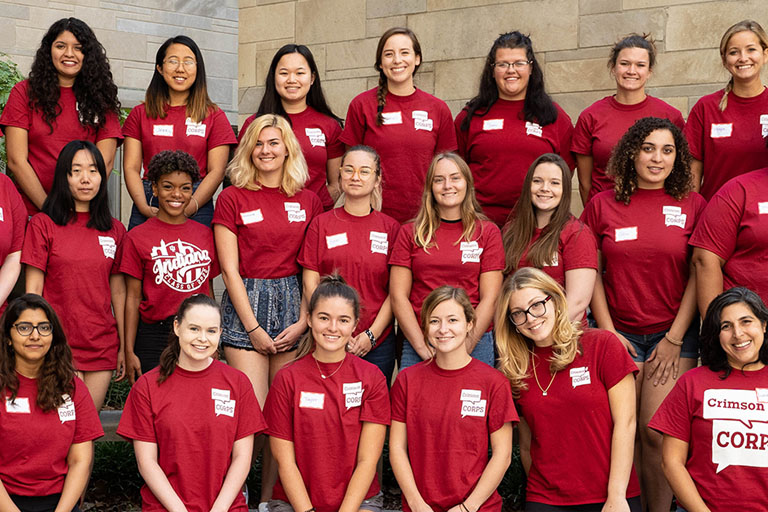As the COVID-19 pandemic continues, more and more IU students, staff, and faculty focus on their mental health and the available resources.
The most prominent is Counseling and Psychological Services (CAPS), which provides various counseling options—from single to couple to group counseling—for both undergrad and graduate students. CAPS provides video consultations and appointments. To schedule, click here.
CAPS has also been hosting online workshops on stress, anxiety, and similar topics. These workshops are not group therapy but are used to teach strategies students may use to improve symptoms of stress, depression, and anxiety and better manage problems that affect academic success. Click here for the schedule.
Students may participate in the Crimson CORPS (Caring, Open-Minded, Respectful Peer Support), a group of IU undergraduate students trained by Counseling and Psychological Services (CAPS) staff to provide informal, accepting, non-judgmental support to their peers. Designed to bridge the gap between students and CAPS, Crimson CORPS delivers a more relaxed environment for students who might feel nervous or apprehensive. For more information, click here.
Additionally, the Graduate Mental Health Task Force, co-chaired by Ellen Vaughan, an associate professor within the Counselling and Education Department, works to improve graduate students' mental health across IU.
The task force is a university-wide initiative that brings together faculty, students, and staff to identify what IU is doing for graduate mental health and pockets of need. Currently, the task force is working on two objectives: easing COVID related anxieties and tensions and a larger one that focuses on mental health in general.
"Graduate students are in a unique position," Vaughan said. "They're students, but they're also researchers and teachers. They're in many different roles, and that can put a lot of stress on them. Then you add the added layer of stress because of COVID, and suddenly there are more specific needs we have to address."
While there are things a person can do to ease anxiety and stress at home, such as engaging with hobbies, it is important to recognize that there is nothing to be ashamed of or embarrassed about asking for mental health help.
"There's still a lot of stigma around mental health care," Vaughan said. "But it's important for students to feel support and know what to do when they are struggling."


